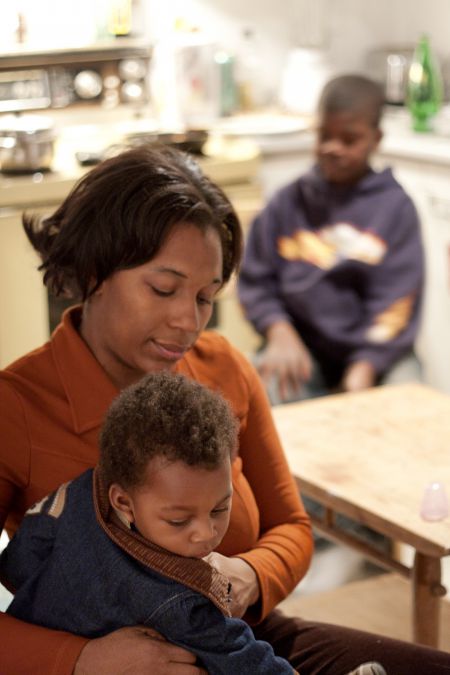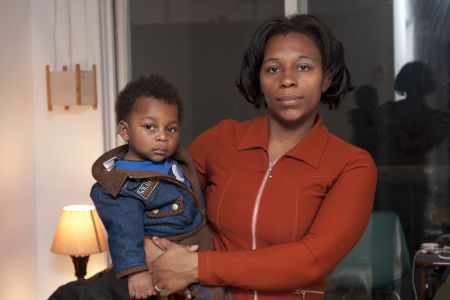When Simo Sandrine Téclaire arrived at Dorval airport as an accepted immigrant to Canada in 2006, she was surprised to learn that her file was not going to be accepted after all.
The reason: the abusive husband she had fled did not arrive with her.
The application for immigration listed her ex-husband as the principle sponsor on the family file and because he was not there, her immigrant status was suddenly null and void. She and her four-year-old son learned they were to be sent straight back to Cameroon.
“When I arrived the agent told me ‘no’ because I was not the principal name on the file,” Téclaire said. “It was my ex-husband. I could not return because I was threatened in my country so I asked for refugee protection status to stay here.”
When making a refugee claim, the burden of proof rests on claimants to show that there is no internal flight alternative within the home country where they could go to be safe, nor any other home state protection that could be sought.
But according to Aaron Lakoff of the Montreal-based migrant support group Solidarity Across Borders, this task is extremely difficult for refugees because many do not have the time or resources to create such a paper trail when in a crisis situation.
“In Sandrine’s case, which I would argue is understandable, she didn’t have the paperwork and the documentation to back all that up,” he said. “The government, in putting that burden of proof on women, is not recognizing the real nature of […] what migrant women in domestic abuse situations face. The first thing on your mind isn’t to necessarily get all that documentation to back up your story. It’s to get the hell out of the situation that you’re in.”
Three years after arriving to Canada, finding work, taking courses and beginning to volunteer for several community organizations, Téclaire heard back that her refugee claim was refused and a deportation order was set for April 2009. But she was already in a long-term relationship with a Canadian man and four months pregnant with his child. Instead of allowing herself to be deported under these circumstances, she did what many refugees do: she went underground.
Despite promises made by the Liberal government years ago, an appeals division at the Immigration and Refugee Board was never created. The only legal alternatives are to apply for a Humanitarian and Compassionate review or a Pre-Removal Risk Assessment, which evaluate a person’s contributions to society and risks faced in returning to his or her home country.
“There’s a severe lack of justice in there in the sense that refugee claimants don’t have access to the appeal,” said Lakoff. “What are the alternatives? You can file an HC, but it isn’t necessarily going to stop your deportation. The government won’t wait for a decision to be rendered on the HC before deporting you, and that could take a couple of years. You’re left waiting.”
Téclaire applied for the HC one year ago and is still waiting for a the results. And her chances are not great: only three per cent of HC applications are successful in preventing deportation. She says the waiting is tearing her and her family apart.
“It’s a very precarious situation, to live day by day without knowing,” she said. “It could be tomorrow, the next day, the next month. It’s very troubling for [my partner] also because we have been together for many years and I don’t know if tomorrow I will still be with this person.”
Lakoff says the poor odds of acceptance are why most would rather take the risk of hiding, even if it means difficulty getting health care or education. In the last decade, the number of deportations has increased by more than 50 per cent to around 12,700 deportees in 2008.
“The reality that people face is that they go underground rather than risk deportation,” he said. “It takes a tremendous amount of courage to defy a fundamentally unjust thing, which is deporting people and breaking up families.”
Going underground did not stop Téclaire from being arrested and detained. Both the pregnant Téclaire and her son Ange, then seven years old, were found and placed in detention in June 2009 but were released on the condition of having a surety.
Since then, Téclaire has tried to stay integrated in daily life despite the ever-growing threat. She continues to volunteer for different community organizations, provide child-care for people, and will be starring in a play again this December.
“It’s distressing,” she said. “Being without status is the worst situation that someone could be in. You can’t go forward. You cannot back up. You cannot do anything.”
This article originally appeared in The Link volume 31, Issue 16, published November 30, 2010.
To find out ways you can support Sandrine, visit http://solidaritesandrine.wordpress.com/ or join the Facebook group Solidarite avec/with Sandrine.





